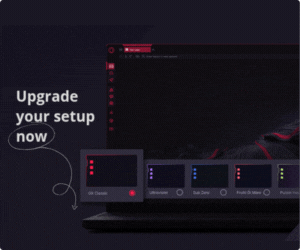
The internet isn’t what it used to be
In 2025, everything you do online is more visible than ever, whether it’s your ISP tracking your every click, advertisers profiling your habits, or cybercriminals lurking on public Wi-Fi. Whether you’re streaming your favorite show, checking your bank account, or scrolling through social media, your data is constantly being monitored, logged, and sometimes even sold.
That’s why more people than ever are turning to VPNs (Virtual Private Networks) to stay safe and private. If you’re not already using one, now’s the time to start.
What is a VPN?
A VPN, or Virtual Private Network, creates a secure, encrypted tunnel between your device and the internet. When you use a VPN, your internet traffic is rerouted through a remote server, making it nearly impossible for third parties to track or intercept your data.
Here’s what a VPN does:
-
Hides your real IP address and location
-
Encrypts all your internet traffic
-
Prevents ISPs, hackers, and websites from snooping on your activity
-
Bypasses content restrictions, censorship, and geo-blocks
Imagine putting your digital data into a locked, armored truck before it hits the internet highway. That’s what a VPN does, your data becomes secure and invisible.
Curious how this compares to other tools? Check out VPN vs Proxy vs Tor: What’s the difference and which one should you use?
Why you need a VPN in 2025
Digital privacy is under attack and most people don’t even realize it. Here’s why a VPN is more important than ever:
-
Your ISP can legally track and sell your browsing history
-
Public Wi-Fi is a goldmine for hackers
-
Many apps and websites collect metadata even when not in use
-
Governments and advertisers may monitor or censor your content
Without a VPN, your data is an open book.
6 Everyday benefits of using a VPN
1. Protection on public Wi-Fi
Using free Wi-Fi at airports, cafés, or hotels? A VPN encrypts your connection, shielding your passwords, messages, and personal info from hackers.
2. Keeps your browsing private
ISPs, trackers, and third parties can’t spy on your online activity. That’s essential in countries with heavy surveillance or if you just value your privacy.
3. Hides your location and IP
Your IP address reveals your physical location. A VPN masks it, making it look like you’re browsing from somewhere else.
4. Access blocked content
A VPN helps bypass geo-restrictions and censorship. Want to stream a show only available in another country? VPNs let you do that.
5. Avoid price discrimination
Some websites show different prices based on where you live. VPNs let you compare costs from multiple locations.
6. Protects remote work
If you’re working from home or abroad, a VPN protects company data from leaks or attacks, especially over unsecured connections.
How to choose the right VPN in 2025
Not all VPNs are safe or reliable. Some even track and sell your data, exactly what you’re trying to avoid!
Look for:
-
No-logs policy: They don’t store your browsing history
-
Strong encryption: AES-256 or better
-
Global server locations: More options = better speed
-
Kill switch: Disconnects internet if VPN drops
-
Fast performance: Minimal speed loss
-
Trustworthy reputation: Verified by independent audits
For secure messaging too, read: End-to-end encryption: How it works and why it matters in 2025
Popular trusted VPNs in 2025 include NordVPN, Surfshark, ProtonVPN, and ExpressVPN.
Free vs Paid VPNs: Is It Worth Paying?
Free VPNs are tempting, but here’s the truth:
| Free VPNs | Paid VPNs |
|---|---|
| Slow speeds | Fast servers |
| Limited data | Unlimited access |
| Track/sell data | Strict no-logs |
| Fewer security features | Advanced protection |
| Annoying ads | Clean experience |
A paid VPN is usually less than the cost of a coffee per month and worth every cent for peace of mind.
VPN + Antivirus = Stronger defense
A VPN protects your data in transit but it doesn’t block malware or viruses. For full protection, combine it with a trusted antivirus program.
See Top 5 antivirus programs of 2025
Conclusion:
Make VPNs a daily habit
In 2025, using a VPN isn’t just smart, it’s essential. You don’t need to be a tech expert or whistleblower to care about your privacy.
If you:
-
Work remotely
-
Travel often
-
Use public Wi-Fi
-
Value your online freedom
Start using a VPN today, your future self will thank you.




